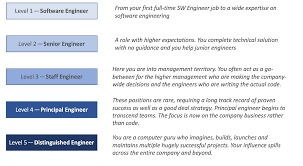Mastering the Art of Strategy: A Guide to Becoming a Successful Strategy Consultant
The Role of a Strategy Consultant
A strategy consultant is a professional who advises organizations on high-level decisions in an effort to help them improve their performance and achieve their goals. These consultants work closely with top management to analyze the organization’s current situation, identify areas for improvement, and develop strategies to enhance the overall efficiency and effectiveness of the business.
Responsibilities of a Strategy Consultant
Strategy consultants are responsible for:
- Conducting in-depth research and analysis of the market, industry trends, and competitors.
- Assessing the organization’s internal capabilities, strengths, and weaknesses.
- Identifying strategic opportunities for growth and development.
- Developing strategic plans and recommendations based on their findings.
- Collaborating with key stakeholders to implement strategic initiatives.
- Monitoring and evaluating the progress of implemented strategies.
Skills Required
To be successful as a strategy consultant, individuals need to possess a diverse set of skills, including:
- Analytical thinking and problem-solving abilities.
- Excellent communication and presentation skills.
- Strong project management skills.
- Ability to work effectively in teams and collaborate with others.
- In-depth knowledge of business operations and strategic planning processes.
Career Outlook
The demand for strategy consultants is expected to continue growing as organizations seek expert guidance in navigating complex business environments. Career opportunities exist in consulting firms, corporations, non-profit organizations, government agencies, and more. With the right skills and experience, strategy consultants can advance to leadership roles within their organizations or start their own consulting practices.
Top 5 FAQs About Strategy Consultants: Salaries, Career Paths, and Industry Leaders
- What do strategy consultants get paid?
- How do you become a strategy consultant?
- What is the highest salary for a strategy consultant?
- Who are the Big 4 strategic consultants?
- Do strategy consultants make a lot of money?
What do strategy consultants get paid?
Strategy consultants are typically well-compensated for their expertise and the value they bring to organizations. The compensation for strategy consultants can vary based on factors such as experience, qualifications, the consulting firm they work for, and the specific industry they specialize in. Generally, strategy consultants can expect to earn competitive salaries that reflect their strategic thinking, problem-solving skills, and ability to drive business growth and transformation. In addition to base salaries, many strategy consultants also receive performance-based bonuses and other benefits as part of their overall compensation package.
How do you become a strategy consultant?
To become a strategy consultant, individuals typically need a combination of education, experience, and skills. Most strategy consultants hold at least a bachelor’s degree in fields such as business, economics, finance, or related disciplines. Many professionals further their education by pursuing a master’s degree in business administration (MBA) or a similar program to enhance their knowledge and credibility in the field. Gaining practical experience through internships or entry-level positions in consulting firms or related industries is also crucial. Developing strong analytical, problem-solving, communication, and project management skills are essential for success as a strategy consultant. Continuous learning, networking with industry professionals, and staying updated on market trends and business strategies are key components of building a successful career in strategy consulting.
What is the highest salary for a strategy consultant?
One frequently asked question regarding strategy consultants is, “What is the highest salary for a strategy consultant?” The salary range for strategy consultants can vary depending on factors such as experience, location, industry, and the consulting firm. Generally, senior-level strategy consultants with extensive experience and a track record of successful projects can command higher salaries. Top-tier consulting firms in major metropolitan areas tend to offer competitive compensation packages that may include base salary, bonuses, and other benefits. However, it’s essential to note that salary figures can fluctuate over time and are subject to negotiation based on individual qualifications and market conditions.
Who are the Big 4 strategic consultants?
The Big 4 strategic consultants refer to the top four global consulting firms known for their expertise in providing strategic advisory services to a wide range of clients. These firms include Deloitte, PricewaterhouseCoopers (PwC), Ernst & Young (EY), and KPMG. Each of these firms has a strong presence in the consulting industry and offers a comprehensive suite of services, including strategy consulting, management consulting, and implementation support. Clients often turn to the Big 4 strategic consultants for their deep industry knowledge, innovative solutions, and track record of delivering results in complex business environments.
Do strategy consultants make a lot of money?
Strategy consultants can earn a substantial income due to the specialized nature of their work and the high level of expertise required. Salaries for strategy consultants can vary depending on factors such as experience, education, the consulting firm they work for, and the industries they serve. In general, strategy consultants often command competitive compensation packages that reflect their strategic insights and ability to drive significant value for their clients. While financial rewards can be attractive in this profession, many individuals are drawn to strategy consulting for the intellectual challenges, opportunities for professional growth, and the chance to work on diverse and impactful projects.






